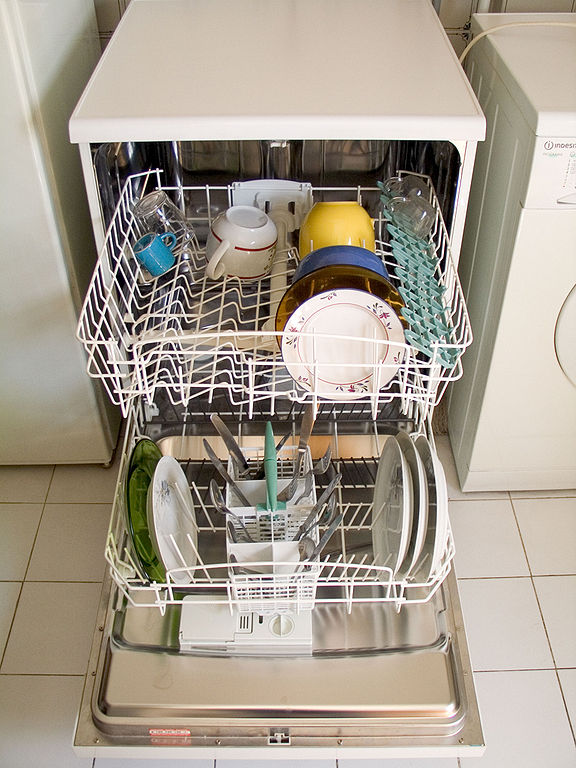In a concerning find, scientists showed that residue from rinse agents on dishes after cleaning in professional-grade dishwashers can seriously damage the protective layer in the gut and also lead to the development of chronic diseases.
A study conducted by researchers at the Swiss Institute of Allergy and Asthma Research (SIAF), an associated institute of the University of Zurich (UZH), has cautioned against the potential harm that these appliances can cause.
Commercial dishwashers are a quick and easy way to clean and dry plates, glasses and cutlery in places such as restaurants, schools and barracks. However, an ingredient- alcohol ethoxylate- in commercial rinse agents can severely damage the gastrointestinal tract, according to the study published in the Journal of Allergy and Clinical Immunology.
In a commercial dishwasher, typically a round of hot water and detergent circulate for 60 seconds at high pressure, followed by another 60-second washing and drying cycle in which water and a rinse agent are used.
“What’s especially alarming is that in many appliances, there’s no additional wash cycle to remove the remaining rinse aid,” Cezmi Akdis, study author and UZH professor of experimental allergology and immunology and director of the SIAF, said, SciTechDaily reported. “This means that potentially toxic substances remain on the dishes, where they then dry in place.”
There is a high probability for the dried chemical residue to make its way into the gut the next time the dishes are used.
The researchers focused on the epithelial layer of cells in the gut, lining the intestinal tract and controlling the movement of elements that can enter the body. A breach in this barrier is associated with a myriad of health conditions such as food allergies, gastritis, diabetes, obesity, cirrhosis of the liver, rheumatoid arthritis, multiple sclerosis, autism spectrum disorders, chronic depression and Alzheimer’s disease, according to the outlet.
In the study, researchers analyzed the effect of different ratios of rinsing agents on the human intestinal organoids and intestinal cells on microchips. The substances were diluted in a ratio that mimicked the quantity that would be present on dry dishes (1:10,000 to 1:40,000).
High doses of rinse agents destroyed the intestinal epithelial cells while lower doses increased its permeability, the study found. Moreover, the activation of several genes and cell signaling proteins that could trigger inflammatory responses was also observed. A component of the rinse agent – alcohol ethoxylates – was found to be responsible for this reaction.
“The effect that we found could mark the beginning of the destruction of the gut’s epithelial layer and trigger the onset of many chronic diseases,” Akdis said, adding that “It is important to inform the public about this risk since alcohol ethoxylates seem to be commonly used in commercial dishwashers.”


